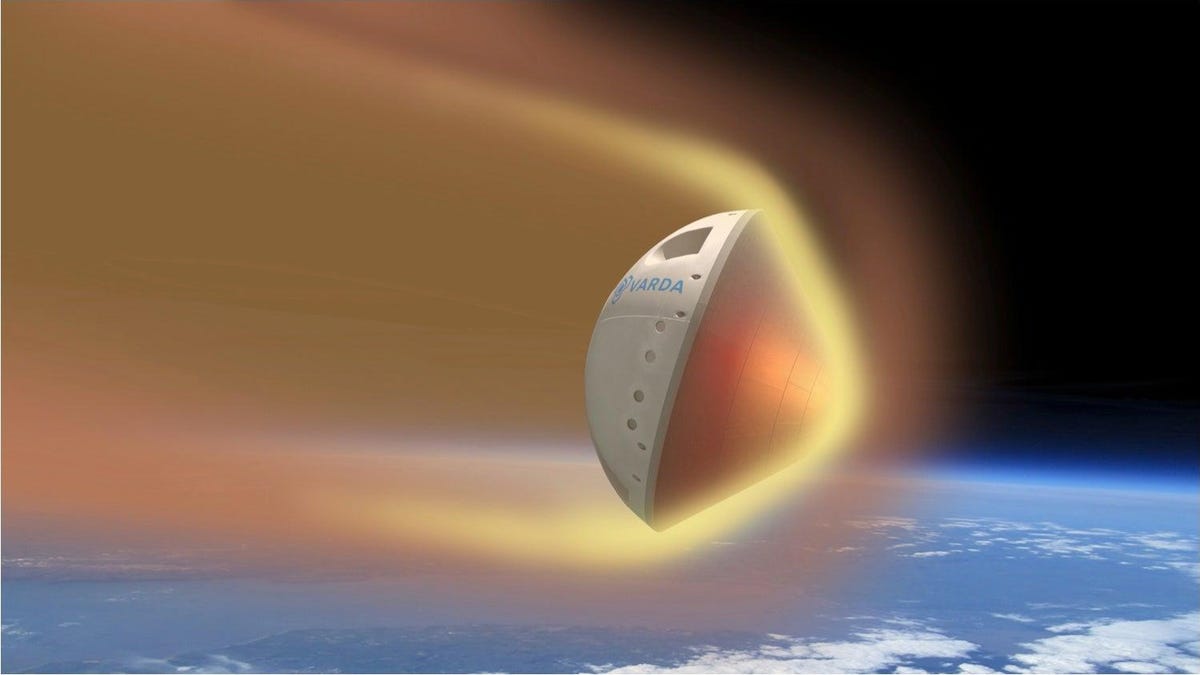
The Federal Aviation Administration (FAA) issued a reentry license to Varda Space’s manufacturing capsule, allowing the first batch of space drugs to return back to Earth.
California-based Varda Space Industries had been struggling to land its first orbital factory, which was originally meant to return to Earth in September 2023 but was denied reentry. Following months of trying, the company was finally granted its reentry license from the FAA, which will allow it to land its capsule at the Utah Test and Training Range on February 21, Varda announced.
Advertisement
“Did it go as smoothly as either Varda or the FAA anticipated?” Delian Asparouhov, Varda’s co-founder, told Gizmodo over the phone. “The answer is no, but at the end of the day we arrived to a result that we’re very happy with and the FAA has done their duty to ensure that it was a safe operation.”
Advertisement
Varda’s first in-space manufacturing capsule launched in June, designed to manufacture products in a microgravity environment (to avoid gravity-induced defects) and transport them back to Earth. For its first mission, the 264-pound (120-kilogram) capsule succeeded in growing crystals of the drug ritonavir, which is used for the treatment of HIV, in orbit. Protein crystals made in space form larger and more perfect crystals than those created on Earth, according to NASA.
Advertisement
Although the test mission pulled off the manufacturing part, it was unable to return the crystals back to Earth. The U.S. Air Force denied a request from Varda Space Industries to land its capsule at a Utah training area, while the U.S. Federal Aviation Administration (FAA) did not grant the company permission to reenter Earth’s atmosphere, leaving the capsule stranded in space.
Those extra few months in space did not likely have any effect on the good stuff inside the capsule. “It’s like table salt, inside of a vial that’s inside of a vacuum, inside of a satellite, experiencing very little effect on it,” Asparouhov said. “The salt is still salty.”
Advertisement
Such may not have been the case had it been a more complex pharmaceutical manufacturing exercise, but luckily, since this was Varda’s first mission, the company kept it pretty simple. “Obviously, over time as we produce more complex pharmaceuticals, those may have more time constraints,” Asparouhov added.
Varda is the first to be granted a Part 450 reentry license, which falls under new regulations, and is the first commercial entity that sought to land a spacecraft on U.S. soil. That may have been part of the reason why the company was struggling to get its license approved. At one point, Varda tried to land its capsule in Australia instead in order to avoid navigating regulatory frameworks within the United States.
Advertisement
Asparouhov also blames it on poor interagency coordination, and hopes that in the future there is more clarity as to which government agencies are responsible for which parts of these types of reentry operations.
As it waits for its first capsule to return from orbit, Varda Space is getting ready to launch its second mission this summer. “We think this is the first step to a whole lot of different things that can eventually get brought down to Earth on a much more regular commercial and lower cost scale,” Asparouhov said.
Advertisement
For more spaceflight in your life, follow us on X (formerly Twitter) and bookmark Gizmodo’s dedicated Spaceflight page.
Services Marketplace – Listings, Bookings & Reviews